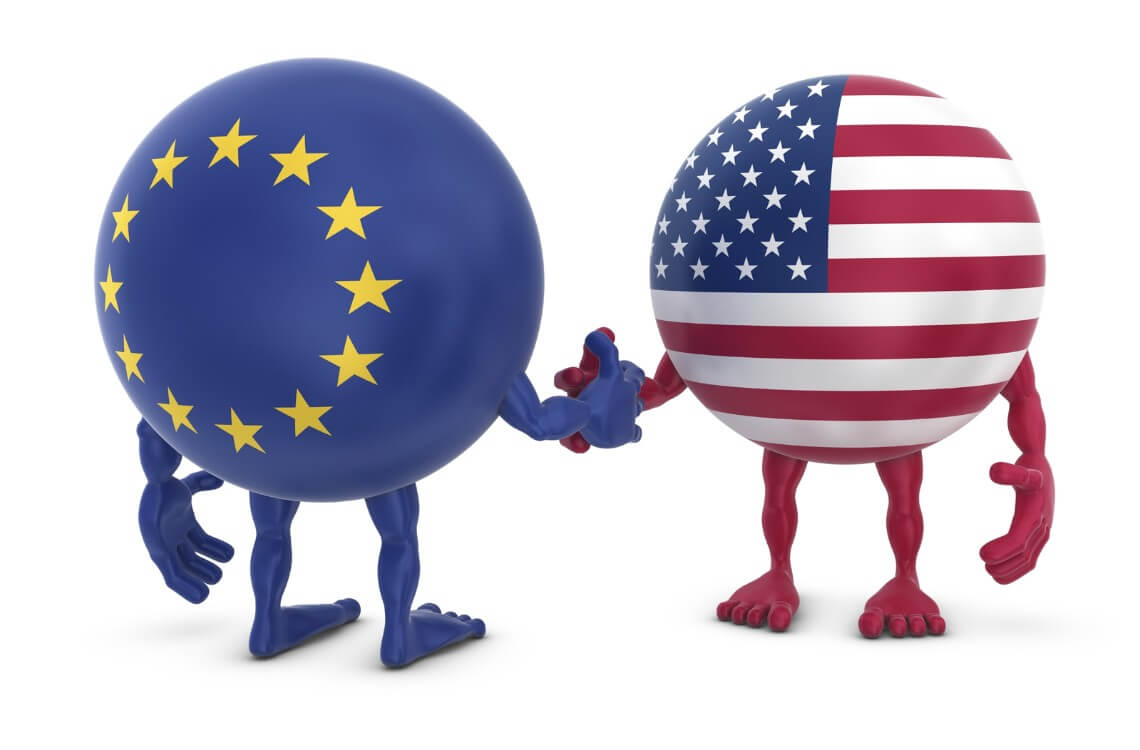Today’s world is caught in a whirlwind of challenges that surpass the traditional borders of military defense. It’s not just about facing down an adversary on the battlefield; the threats we face have mutated into forms that our existing systems can scarcely comprehend.
The complex relationship between the U.S. and EU is at a critical juncture, and a new approach is necessary. If not, we risk failing to address the critical issues of our time, from the rise of new superpowers to climate change and technological revolution.
A Failed Current System
There is no sugarcoating the fact that our current transatlantic framework is failing us. NATO, while still playing a crucial role in areas such as support for Ukraine against Russian aggression, is proving insufficient.
The U.S. and EU find themselves burdened with matters that extend beyond NATO’s mandate. Security isn’t merely a military matter anymore. It’s about the intertwining of military security with economic security and prosperity.
These elements need a synchronized approach, not isolation in separate chambers.
The rise of China, the horrors of climate change, the intricate nature of global supply chains, transformational technologies such as artificial intelligence, and the nuclear threats from Iran and North Korea—all these matters scream for a closer U.S.-EU collaboration.
Recent joint efforts such as imposing sanctions on Russia demonstrate the potential for cooperation, but there’s more to be done.
Trade and investment between the U.S. and EU are substantial, with a third of transatlantic trade consisting of intra-company transfers and mutual investment accounting for over 30% of the total global investment. But let’s face it, this is just the tip of the iceberg.
We’re often found lacking in vision, failing to consult with one another, and diverging on vital issues. Consider the European Parliament’s sweeping AI regulation without U.S. input, or the discordant approaches to climate change, or even the U.S.’s exclusive incentives for clean technologies.
The rifts are glaring, and the need for a new strategy is undeniable.
Pathways to a Reinvented Partnership
The upcoming EU-U.S. Summit is a prime opportunity to rethink and weatherproof the transatlantic relationship against impending political storms. What’s needed is not just words, but concrete actions. Here’s a look at some daring and critical steps:
- Acknowledging EU’s Security Role: It’s time the EU’s increasing role in security is recognized and leveraged.
- Building Mechanisms for Collaboration: We must develop methods to prevent surprises in law-making without prior cross-Atlantic consultation.
- Economic Integration: We need to reinvent free trade and investment initiatives, aiming for a tariff-free transatlantic market within a decade, removing investment barriers, and achieving mutually recognized standards.
- Reviving Private Sector Organizations: Let’s create new platforms for business, labor, consumer, and environmental groups to engage transatlantic dialogue.
- Institutionalizing Annual EU-U.S. Summits: Regularized summits would ensure sustained efforts to strengthen the partnership.
- Establishing a Transatlantic Assembly: Modeled on Nato’s North Atlantic Assembly, this could foster more robust legislative collaboration.
These aren’t mere suggestions; they are imperatives. They would breathe life into a geopolitical and economic transatlantic partnership that’s fit to face the 21st century.
The U.S. and EU must reinvent their relationship for the times we live in. It’s a pressing necessity, not a choice. We cannot allow ourselves to be held back by obsolete structures and lack of collaboration.
Let’s not mince words: our failure to adapt will have consequences. The old ways won’t cut it anymore. It’s time for bold and relentless innovation, the kind that doesn’t play it safe but plays to win. It’s time for a new approach, and it can’t come a moment too soon.





